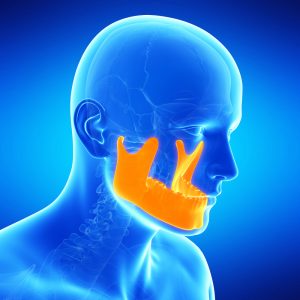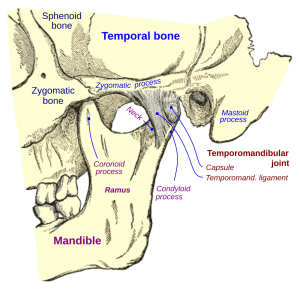Can a migraine cause a fever? It's a question many people wonder about when experiencing really bad headaches and a high temperature. You're not alone. Many people get migraines that come with a fever. But what's the link between these two?
Migraines are complex and can be caused by many things. The exact link between migraine fever connection is being studied. But knowing about this connection is key to managing it well.
If you have migraines with fever, knowing when to get help is important. Ignoring these signs or treating yourself can cause more problems.
Key Takeaways
- Migraines and fever might be connected, but we're learning more.
- Understanding your symptoms is key to managing them.
- Getting professional help is important for migraines with fever.
- Ignoring symptoms or treating yourself can lead to more issues.
- Getting the right diagnosis and treatment can really help your life.
Understanding the Migraine-Fever Connection
If you have migraines, knowing how they link to fever can help. Migraines are a brain issue that can cause headaches and make light and sound hurt. Sometimes, fever can be linked to migraines.
Common Migraine Symptoms You Should Know
Migraines can affect people differently. Common symptoms include throbbing headache, nausea, vomiting, and increased sensitivity to light and sound. Some people see flashing lights or feel tingling before the headache starts.
Knowing these symptoms helps in diagnosing and managing migraines. By recognizing migraine signs, you can ease your pain and stop future episodes.
Silent Migraines: When There's No Headache
Silent migraines, or acephalgic migraines, have no headache. You might feel aura, nausea, or light sensitivity, but no headache. This makes diagnosing them tricky, as the usual migraine sign is missing.
The Truth About Migraines and Fever
Do migraines cause fever? The link between migraines and fever is complex. Knowing this is key to managing your symptoms well.
Can a Migraine Cause a Fever or Something Else Going On
Migraines are a brain condition that brings on strong headaches. They also cause nausea and light sensitivity. But migraines usually don't make you feverish. Yet, some people might feel hot or flushed during a migraine.
Key factors to consider:
- Migraines don't usually cause fever.
- Other things like infections might make you feel feverish.
- Some migraine symptoms can feel like fever.
Why You Might Feel Hot During a Migraine
Feeling hot during a migraine can happen for several reasons. These include:
- Blood vessels getting wider, which can make blood flow to the skin increase.
- The trigeminal nerve getting active, which might affect how your body regulates temperature.
- Hormonal changes that can also affect your body temperature.
Hemiplegic Migraine: The Rare Exception
Hemiplegic migraines are different from other migraines. They are rare and very severe. You might wonder why they are so unique.
What Makes Hemiplegic Migraines Different
Hemiplegic migraines cause weakness on one side of the body. This can be scary. They also bring symptoms like fever with severe headache, confusion, and seizures.
When Fever Accompanies a Hemiplegic Migraine
Fever is rare in migraines, but it can happen in hemiplegic migraines. This makes diagnosis hard. It's important to know that fever with severe headache might mean a more serious condition.
When Migraines and Fever Occur Together: Understanding the Causes
When migraines and fever happen together, it's key to know why. You might wonder if they're linked or if they're different problems. Our doctors are ready to explain the possible reasons and suggest migraine fever remedies.
Many common sicknesses can make both migraines and fever worse. These include:
- Infections like the flu or sinusitis
- Viral or bacterial meningitis
- Autoimmune disorders
Common Illnesses That Trigger Both Symptoms
Finding out the main cause is very important. Our doctors will help figure out what's making you sick.
Recognizing When It's More Than Just a Migraine
Not every bad headache is just a migraine. Knowing the difference can save lives. Migraines are common, but some symptoms mean you need to see a doctor fast.
Key Warning Signs That Require Immediate Attention
Watch your symptoms closely when you have a migraine. Some signs mean it's more than a migraine. These include:
- Severe headache with fever: A high fever with a headache might mean an infection. It could be more than just a migraine.
- Confusion or difficulty speaking: Confusion, trouble finding words, or slurred speech is a big warning sign. Get help right away.
- Weakness or numbness: Sudden weakness or numbness, mainly on one side, is a serious sign.
- Vision changes: While migraines can cause vision problems, some changes are more serious. These include double vision, losing vision, or seeing halos around lights.
Effective Treatment Approaches for Migraine Sufferers
For those with migraines, the right treatment is key. It can change their life from pain to normalcy. Migraines are complex, so what works for one might not for another. Knowing the treatment options is important for managing migraines well.
Medical Treatments for Recurring Migraines
Medical treatments for recurring migraines include preventive and acute treatments. Preventive treatments like beta-blockers, anticonvulsants, or antidepressants can lower attack frequency and severity.
- Beta-blockers: Effective in reducing the frequency of migraines
- Anticonvulsants: Can help in preventing migraine attacks
- Antidepressants: Useful in managing migraines, when accompanied by depression
Triptans are often used for acute treatments. They narrow blood vessels and block pain signals. Ergots and corticosteroids are also options when triptans don't work.
Always consult with a healthcare provider before starting any migraine treatment. Only a qualified medical professional can determine the most appropriate treatment plan for your specific condition.
Breakthrough Approaches to Intractable Migraines
For intractable migraines, new hope comes from breakthroughs. Nerve stimulation therapies like TMS and nVNS are promising. They can reduce migraine frequency and severity.
- Transcranial Magnetic Stimulation (TMS): A non-invasive procedure that uses magnetic fields to stimulate nerve cells
- Non-invasive Vagus Nerve Stimulation (nVNS): Involves stimulating the vagus nerve with electrical impulses
Lifestyle modifications and dietary changes also help manage migraines. Avoiding triggers, keeping a regular sleep schedule, and staying hydrated are simple but effective steps.
By trying these treatments and working with doctors, people can find relief from migraines. This can greatly improve their life quality.
Taking the Next Step: Getting Professional Help
If you have migraines with fever, knowing why is important. We talked about how migraines and fever can be linked. This is true for hemiplegic migraines or when other health issues cause both.
When to Book an Appointment with Our Migraine Specialists
See a doctor if you often get migraines with fever. Or if your symptoms get worse. Consult Raleigh Facial Pain Center migraine specialist can help with many migraine types, even rare ones.
What to Expect During Your First Consultation
At your first visit, doctors will check you thoroughly. They'll talk about your health history and might do tests. This helps them find the cause and make a plan just for you.
The Path to Long-Term Migraine Relief
With the right help, you can feel better for a long time. Raleigh Facial Pain Center has many treatments, from medicines to new methods for hard cases. Knowing how migraines and fever are connected is important for managing your symptoms.
Conclusion
The connection between migraines and fever represents an important but often misunderstood aspect of migraine management.
While typical migraines don't usually cause fever, exceptions like hemiplegic migraines exist, and various underlying conditions can trigger both symptoms simultaneously.
Understanding this relationship is crucial for proper diagnosis and effective treatment.
Suffering migraines? Don't make it worse. Here at Raleigh Facial Pain Center, we help with proactive steps toward professional care when experiencing migraines.
Our specialists offer comprehensive evaluation and personalized treatment plans that address both common and rare migraine variants.
With the right medical guidance and a combination of traditional and breakthrough therapies, long-term relief from debilitating migraine symptoms is achievable, allowing you to reclaim your quality of life. Contact us today!
FAQS
What medical conditions can cause both migraines and fever?
Conditions like meningitis, sinus infections, or autoimmune diseases can cause both symptoms and require medical attention.
How can I tell if my fever is related to a migraine or something else?
Track other symptoms like stiff neck, rash, confusion, or persistent nausea. These may point to something more serious than a typical migraine.
What should I do if I have a fever and severe migraine symptoms?
Seek medical care immediately if you have high fever, severe headache, neck stiffness, or neurological changes—these could be signs of something serious.
Is there a difference between migraine with aura and fever-related symptoms?
Yes. Aura involves visual or sensory disturbances, while fever-related symptoms may involve body aches or chills, which aren't typical of aura.



